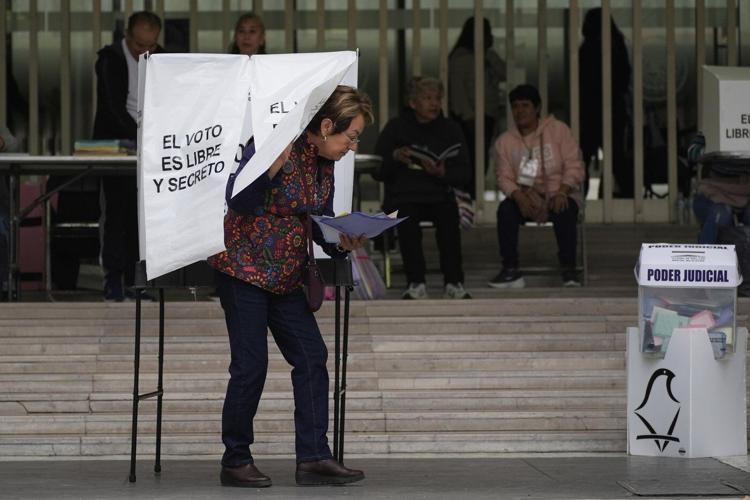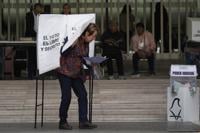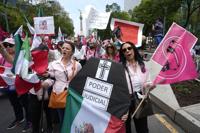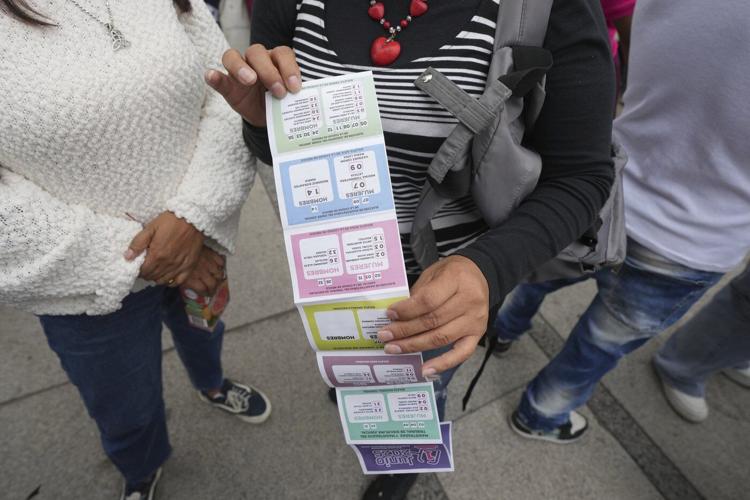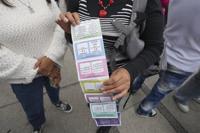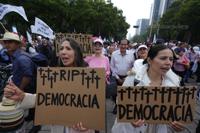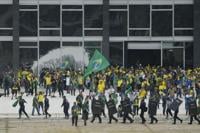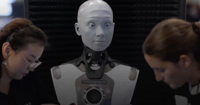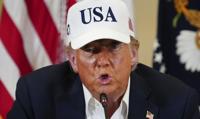MEXICO CITY (AP) — Mexican President Claudia Sheinbaum on Monday defended a judicial election meant to transform the country’s court system, as poll workers tallied votes after a weekend marked by low turnout, confusion and criticism.
Polls closed Sunday night with the question hanging in the air of what will become of Mexico's judiciary, the answer to which will only emerge in the coming days as results roll in. The vote is .
Mexico's electoral authority announced late in the night that 13% of Mexico's 100 million voters cast ballots at the polls, lagging far behind the 60% turnout just a year before during the country's presidential election.
Nevertheless, Sheinbaum called the voting “a complete success."
“Mexico is the most democratic country in the world,” she added.
Experts warned of startling low turnout in the lead-up to the historic election because of the mindboggling array of unfamiliar choices and the novelty of voting for judges. Experts say those factors may throw into question the legitimacy of the election, which has faced months of fierce scrutiny.
Instead of judges being appointed on a system of merit and experience, Mexican voters cast ballots to choose between around 7,700 candidates vying for .
Sheinbaum, a member of Mexico’s ruling party, Morena, rejected the criticisms and insisted the election would only only make Mexico more democratic and root out corruption in a system that most people in the country believe is broken.
Morena late last year, fueling protests and criticism that the reform is an attempt by those in power to seize on their political popularity to gain control of the branch of government until now out of their reach.
The president on Sunday said that those who said that Mexico was falling into authoritarianism “are lying." And on Monday, she doubled down on that message.
"If the objective was to control the courts, why would we hold an election?" she said.
She added that if they had wanted to seize control of the courts, they would have simply done what former President Ernesto Zedillo did 30 years ago when he used a decree to expel judges from the Supreme Court and fill it with his own picks.
While some voters said they felt pushed to vote in an election they felt would determine the fate of the country’s democracy, many more expressed a deep sense of apathy, citing disillusionment because of decades of corruption and lack of basic information about the vote.
“I’m not interested (in voting). Parties and their messages — they come and they go. It’s all the same,” said Raúl Bernal, a 50-year-old factory worker in downtown Mexico City walking his dog.
The extremely low turnout Sunday raised questions of political legitimacy that could weaken the new judicial system, according to Jaime Arellano, academic and former director of the Center for Justice Studies in the Americas, part of the Organization of American States.
“Judicial independence in Latin America is under attack,” Arellano said.
Úrsula Indacochea of the Washington-based Foundation for Due Process said that there were two clear signs that justice could be in danger.
The first is when politicians begin to attack justice institutions in their public discourse, saying there is a problem and then presenting themselves as the solution.
The second is when governments begin to disobey judicial rulings.
Former Mexico President Andrés Manuel López Obrador hammered the nation's judges for years in his daily news briefings, calling them corrupt and cutting their funding. Then, as his party jammed through judicial reform at the end of his term, he ignored court rulings that would have slowed the process, arguing they couldn't be part of the case and independent judges of the facts.
While the contexts are different, politicians have undermined judges in Ecuador, El Salvador, Costa Rica and more recently the U.S.
The two Latin American countries of the most acute concern are Guatemala, where a of its Attorney General's Office, and Peru, which isn't as far along but seems to be headed down the same path, Indacochea said.
“The case of Guatemala and Peru is the danger of having a sharpshooter, versus in Mexico's case, a machine gun firing into the air," she said. “You don't know where those bullets are going to fall, who they will hit, but you know a lot of people are going to be hurt.”

